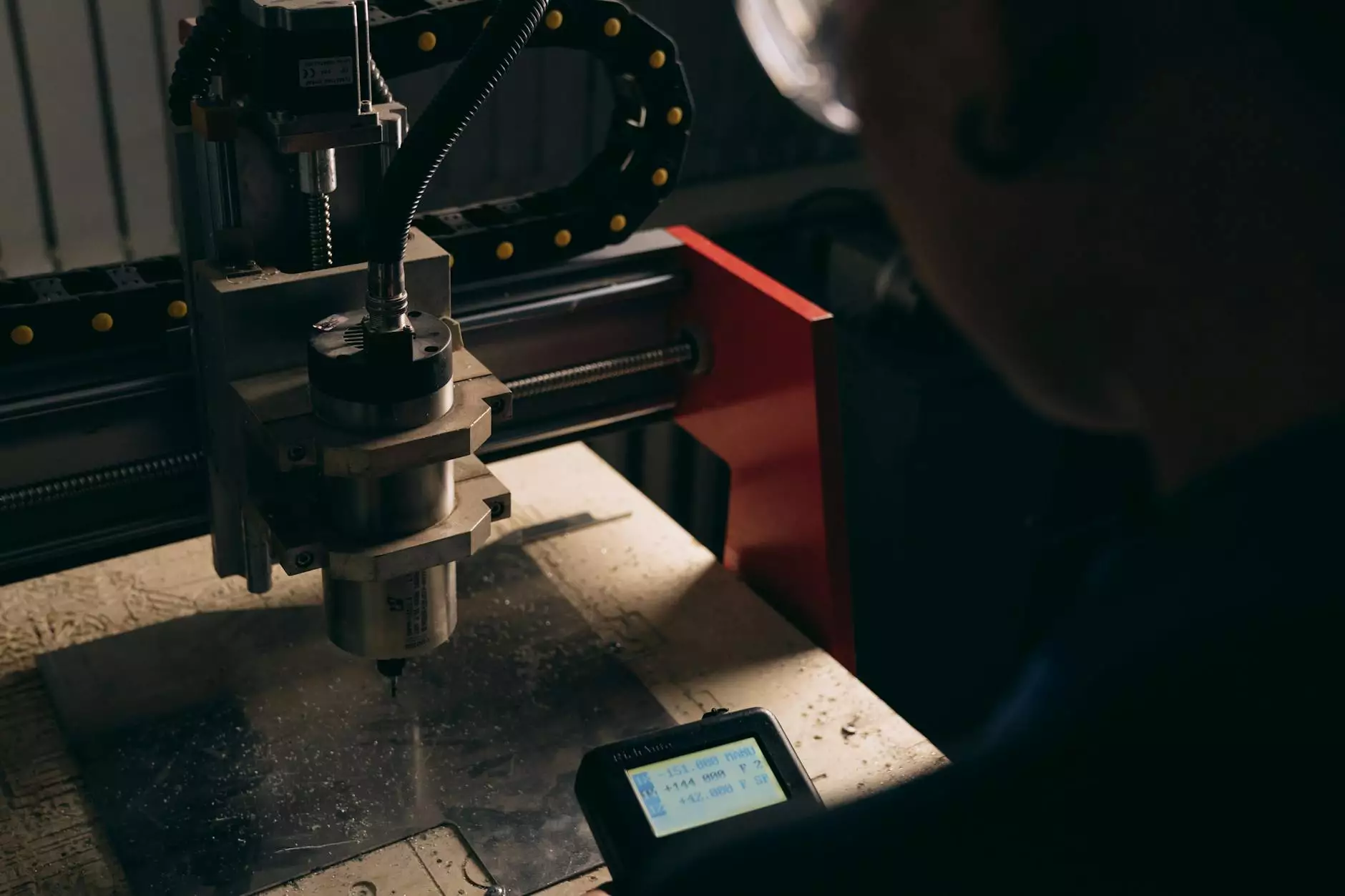CNC Precision Turning Parts Factories: Leading the Metal Fabrication Industry

The world of manufacturing is rapidly evolving, driven by advancements in technology, efficiency, and precision. Among the key players in this transformation are CNC precision turning parts factories, which are essential for producing highly accurate components that meet the stringent demands of modern industries. Within this extensive article, we will delve into the pivotal role of these factories, their processes, and how they shape the future of metal fabrication.
Understanding CNC Precision Turning
CNC, or Computer Numerical Control, refers to the automated control of machining tools by means of a computer. Precision turning is a key manufacturing process that involves rotating a workpiece while cutting tools create cylindrical shapes, custom profiles, or threads. Here are some critical aspects of CNC precision turning:
- Automation: Increases efficiency and reduces errors.
- Precision: Delivers tight tolerances essential for fit and functionality.
- Flexibility: Allows for rapid adjustments in production for different components.
- Cost-effectiveness: Reduces material waste through precise cutting techniques.
The Role of CNC Precision Turning Parts Factories
CNC precision turning parts factories are integral to various sectors, including automotive, aerospace, and healthcare. These factories specialize in manufacturing parts that are not only functional but also durable and efficient. Let us explore some of the main contributions of these factories:
1. High-Quality Manufacturing Standards
Quality assurance is fundamental in any manufacturing environment. CNC precision turning ensures that every part produced meets the highest standards of quality. Factories implement rigorous testing protocols to ensure:
- Dimensional Accuracy: Parts are manufactured to exact specifications.
- Material Integrity: Choice of raw materials that withstand high stress and wear.
- Surface Finish: The quality of the surface finish is polished to enhance the appearance and functionality of the part.
2. Customization and Versatility
One of the most significant advantages of CNC precision turning is the ability to produce customized parts tailored to specific needs. Factories can efficiently handle:
- Small Batch Production: Ideal for niche industries or custom projects.
- Complex Geometries: Ability to produce intricate designs that traditional machining cannot achieve.
- Diverse Materials: CNC machines can work with materials such as metals, plastics, and composites.
Innovations in CNC Precision Turning
As technology continues to advance, CNC precision turning parts factories are embracing new innovations that enhance their operations. Some notable technologies include:
1. Advanced Software and Tools
Utilizing sophisticated software for design and machining, CNC factories can optimize the entire production process. Software aids in:
- Design Simulation: Engineers can visualize and test designs before production.
- Tool Path Optimization: Reduces cycle times and enhances efficiency.
- Real-Time Monitoring: Machines can be monitored for performance and quality control.
2. Smart Manufacturing and IoT Integration
The integration of the Internet of Things (IoT) has led to the emergence of smart manufacturing. CNC precision turning parts factories are now harnessing data analytics and machine learning to:
- Predictive Maintenance: Reducing downtime by anticipating machine failures.
- Process Optimization: Leveraging data to fine-tune machining processes.
- Supply Chain Management: Enhancing inventory control and logistics through real-time data analysis.
Environmental Sustainability in CNC Precision Turning
With rising global concerns about sustainability, CNC precision turning parts factories are also taking steps toward environmentally friendly practices. Key initiatives include:
- Material Recycling: Implementing scrap recycling protocols to minimize waste.
- Energy Efficiency: Utilizing energy-efficient machines and practices to lower overall energy consumption.
- Sustainable Sourcing: Partnering with suppliers who prioritize sustainability in their operations.
Challenges Faced by CNC Precision Turning Parts Factories
Despite their advancements and contributions, CNC precision turning parts factories face several challenges:
1. Skilled Workforce Shortage
The demand for highly skilled technicians and engineers in CNC machining is growing. Factories must invest in training and development programs to cultivate a skilled workforce capable of handling advanced machinery.
2. Keeping Up with Technological Advances
The fast pace of technological change means that factories need to continuously invest in new technologies and upgrade their equipment. This requires significant capital investment and strategic planning.
3. Cost Pressures
As globalization expands, competition increases, resulting in cost pressures on manufacturing. CNC precision turning parts factories need to strike a balance between maintaining quality and reducing costs.
The Future of CNC Precision Turning Parts Factories
The future looks promising for CNC precision turning parts factories, with several trends shaping the landscape:
- Increased Automation: More factories will adopt automated systems to increase efficiency and consistency.
- Collaboration and Partnerships: Strategic collaborations between manufacturers and technology providers will drive innovation.
- Customization Demand: Industries will increasingly require customized solutions, leading to growth in CNC precision turning applications.
Conclusion
In conclusion, CNC precision turning parts factories represent a critical component in the metal fabrication industry. Their ability to deliver high-quality, precise, and customized components plays an essential role in various sectors. As technology continues to evolve, these factories will remain at the forefront, leading the transformation toward more efficient, sustainable, and innovative manufacturing processes. Embracing the future, the factories are set to continue making a meaningful impact across industries, driving progress and maintaining competitiveness in a rapidly changing world.
For more information on CNC precision turning and associated services, visit DeepMould.net, where you can explore comprehensive solutions offered by experts in metal fabrication.



